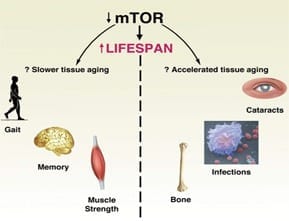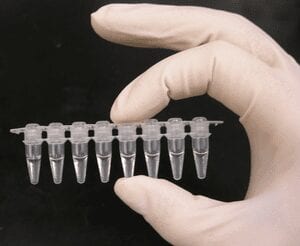
A data-sharing scheme utilizing an encryption manager shows the way towards low-cost, flexible and secure cloud storage services
Wider adoption of cloud storage services by organizations has been hindered by security and privacy issues. A consequence of storing data on the cloud is that, by its very nature, the storage infrastructure is not owned by the same organization that owns the data. In addition, the data of one user is stored along with that of many others. Traditional schemes for ensuring security can only protect data privacy by sacrificing convenient operations such as searching and sharing.
Now, Shu Qin Ren and his colleague Khin Mi Mi Aung at the A*STAR Data Storage Institute in Singapore have devised a scheme that would not only allow organizations to store data on the cloud without loss of privacy but also permit searching and sharing of the data1. The system is able to preserve the benefit of the cloud’s specialized low-cost storage infrastructure while overcoming its current privacy and flexibility limitations. “The scheme may potentially push forward the wider adoption of cloud storage usage for organizations,” says Ren.
The solution proposed by the researchers involves a central ‘key manager’, who specifically manages data authentication and access authorization. In their scheme, data stored on the cloud is encrypted by its owner and hence is indecipherable to anyone else — including the cloud storage provider. A secret key required to unlock the encryption is generated and kept by the owner, who also determines an access policy for other users. This policy is implemented by the key manager, who generates a second access key, which is then passed back to the owner. Next, the owner wraps the original encryption key in this second layer of protection. The key manager is then able to pass on the second ‘public’ key to authorized third parties to allow them to access the data.
The Latest Bing News on:
Data-sharing
- Turkmen communications agency and UNDP launch e-data sharing systemon May 3, 2024 at 9:42 am
ASHGABAT, Turkmenistan, May 3. The Turkmenaragatnashyk Agency (Turkmen Communications) and the UN Development Program (UNDP) conducted an online launch of an interdepartmental electronic information ...
- Africa CDC and EU Partner in New Genomic Surveillance and Data-Sharing Projectson May 3, 2024 at 6:10 am
Press Release - Two new projects set to boost Africa's competency in molecular detection of outbreaks on genomic surveillance and data sharing have commenced on the continent.
- Potential unleashed: How companies can leverage new technologies for safe data sharingon May 3, 2024 at 2:30 am
Security and privacy issues have made businesses reluctant to share data with each other. But those are problems that technology can solve.
- Meeting of Attorneys-General to focus on discussion of bail laws, data sharing between stateson May 2, 2024 at 6:21 pm
Bail laws and greater data sharing between states about high risk or serial perpetrators will be on the agenda ahead of talks about the prevention of violence against women.
- Tableau and Databricks Expand Strategic Partnershipon May 2, 2024 at 5:46 am
At the Tableau Conference 2024, Tableau and Databricks announced significant updates to their strategic partnership with the introduction of ...
- FCC Slaps AT&T, Verizon, T-Mobile, Sprint with $200 Million Fine for Illegal Location Data Sharingon May 1, 2024 at 11:50 am
Mobile, and Sprint a total of around $200 million for illegally sharing and selling customers' real-time location data without consent. The carriers sold access ...
- FTC urged to probe automakers’ location data sharing practiceson May 1, 2024 at 6:57 am
The Federal Trade Commission has been sought by Sens. Ron Wyden, D-Ore., and Ed Markey, D-Mass., to launch an investigation into major automakers' driver location data sharing practices after a ...
- Public Comment on Proposed Rulemaking to Expand Tax Data Sharing with the US Census Bureauon April 30, 2024 at 10:01 am
The Internal Revenue Service (IRS) posted a proposed rule to expand the range of tax data shared with the US Census Bureau for research and statistical purposes on March 29, 2024. In response, Urban ...
- FCC fines US wireless carriers over illegal location data sharingon April 29, 2024 at 11:19 am
The Federal Communications Commission on Monday fined the largest U.S. wireless carriers nearly $200 million for illegally sharing access to customers’ location information.
- FCC fines US wireless carriers nearly $200 million over illegal location data sharingon April 29, 2024 at 10:40 am
The Federal Communications Commission fined the largest U.S. wireless carriers nearly $200 million for illegally sharing access to customers’ location information. The FCC is finalizing fines first ...
The Latest Google Headlines on:
Data-sharing
[google_news title=”” keyword=”Data-sharing” num_posts=”10″ blurb_length=”0″ show_thumb=”left”]
The Latest Bing News on:
Data security and privacy
- Thune, state lawmakers meet with industry leaders to talk data privacyon May 3, 2024 at 3:52 pm
U.S. Senator John Thune met with industry leaders across many fields to discuss data privacy in the state and across the U.S. The round table conversation, hosted by Dakota State University, offered ...
- Microsoft ties executive pay to security following multiple failures and breacheson May 3, 2024 at 1:24 pm
The most high-profile of these breaches involved a China-based hacking group named Storm-0558, which breached Microsoft's Azure service and collected data for over a month in mid-2023 before being ...
- Private AI launches Cloud API to streamline data privacyon May 2, 2024 at 8:32 am
This seamless integration helps ensure data security and regulatory compliance. "Our new PII detection cloud API represents a significant milestone in our mission to create the privacy layer for data, ...
- The Top Privacy And Security Tech Trends Shaping The Next Decadeon April 30, 2024 at 10:58 pm
Explore the frontier of privacy and security, with the technological advancements set to redefine our lives by 2035, from quantum computing to biosecurity.
- Feds Focus on Data Privacy and Cybersecurity in Latest Legislative and Rule Proposalson April 30, 2024 at 5:00 pm
In the past month, two significant proposals were announced that may have significant implications for some companies if the proposals become effective. On April 7 ...
- An Oversight Model for AI in National Security: The Privacy and Civil Liberties Oversight Boardon April 30, 2024 at 9:43 am
As national security agencies race to adopt AI, it is critical that Congress and the Biden administration shore up oversight of these technologies, which they acknowledge pose serious risks to privacy ...
- Packaging Executives Weigh Data Governance and Security Measureson April 30, 2024 at 9:42 am
Packaging industry executives are finding major benefits to increased data accessibility, but with accessible data comes security concerns.
- Why Using Microsoft Copilot Could Amplify Existing Data Quality and Privacy Issueson April 30, 2024 at 5:00 am
Microsoft Copilot provides an easy and logical first step into GenAI for many organizations, but beware of the privacy pitfalls.
- As Musk Visits China, Tesla Wins Key Data Security Clearanceon April 28, 2024 at 8:08 pm
Tesla Inc.’s locally made cars have cleared a key data security and privacy requirement in China in a boost for Elon Musk, who made a surprise weekend visit to Beijing to try to win approval to ...
- The biggest data breach fines, penalties, and settlements so faron April 25, 2024 at 5:00 pm
Here are the biggest fines and penalties assessed for data breaches or non-compliance with security and privacy laws. In May 2023, Ireland’s Data Protection Commission (DPC) concluded an enquiry ...
The Latest Google Headlines on:
Data security and privacy
[google_news title=”” keyword=”data security and privacy” num_posts=”10″ blurb_length=”0″ show_thumb=”left”]










